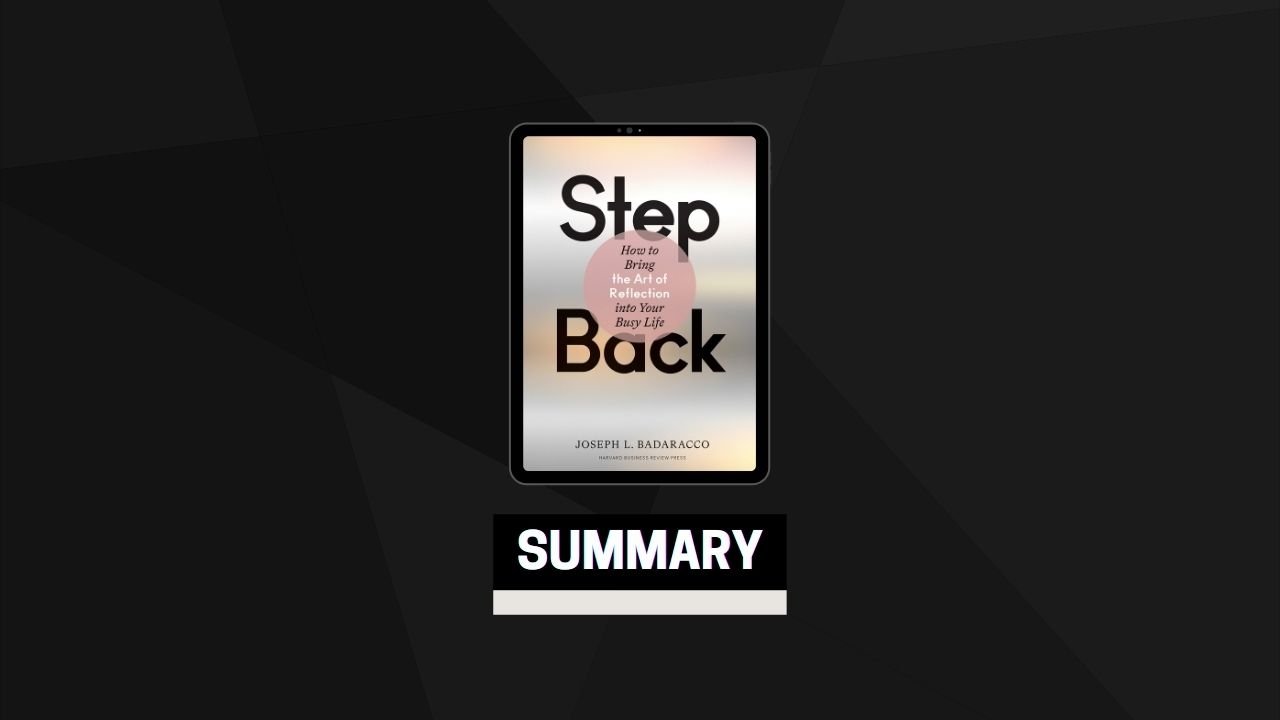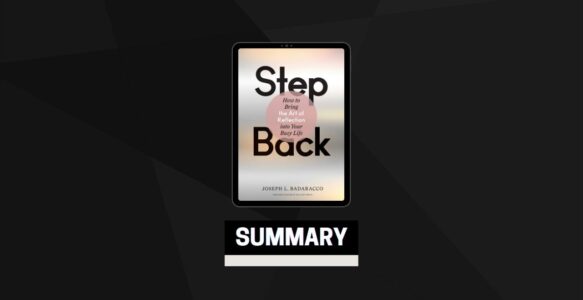Aim for Good Enough
A standard piece of advice for men and women who are overcommitted is to tell them to prioritize and reduce their commitments. In many cases, this is worth thinking about, but the problem runs deeper—and, for some people, an intensely committed life isn’t a problem. It’s how they want to live. One manager put it simply, saying, “I tend to run toward crises—that’s what gets me jazzed.”
The logical reaction to the combination of workplace pressures and serious personal commitments is to look for ways to be more productive. This means figuring out what really needs doing and then doing it as efficiently as possible. Unfortunately, however, this sensible response carries the risk of gradually turning a person into a full-fledged member of the cult of productivity. Its adherents feel that, if they aren’t being productive, the world is out of whack and they shouldn’t feel good about themselves.
Downshift Occasionally
There are many ways to downshift and contemplate for a few moments, but they are all variations on the same basic theme. In the Disney version of Alice in Wonderland, the White Rabbit, a chronically late and distracted creature, gives Alice advice that he needs to follow himself. “Don’t just do something,” he says. “Stand there.”
Doing this sounds simple, but you have to observe yourself to find the times and places when you can actually decelerate for a while. A little voice regularly tells us we shouldn’t waste time and, if we do pause for a moment, we can hear our mental engines revving in the background. But giving in to this pressure comes at a price. We miss out on depth of experience. Over time, we end up managing and processing our lives rather than living them.
Meandering, slowing down, experiencing nature, and celebrating can filter out some of the stimuli that constantly bombard us. They are fundamentally ways to gain depth of experience and keep too much of your life from going by in a highly productive blur. At one point, believing the end of his life was the new year, Montaigne wrote, “I try to increase it in weight, I try to arrest the speed of its flight by the speed with which I grasp it … The shorter my possession of life, the deeper and fuller I must make it.”
Moments of quiet contemplation are important in their own right, but they are important in another way. By quieting our minds to some degree, these reflective pauses can clear the way for another important form of reflection, one that can help us make progress on the really hard problems of work and life.
Ponder the Tough Issues
Almost everyone knows a few people who are especially good at thinking through problems and understanding complicated situations. What sets them apart, quite often, is their skill at a fundamental type of reflection, best described as pondering. It opens the door to deeper understanding, insight, and creativity and better decisions—on personal and professional issues.
Looking at a problem or a question from different perspectives may sound easy, but it isn’t. We often respond to complex situations with quick, instinctive, definitive reactions or answers. Even worse, we often stick like glue to our initial positions. And these aren’t just bad habits—we seem to be hardwired to behave this way. A recent book, Thinking, Fast and Slow by Daniel Kahneman, presents a vast range of experiments and real-world examples showing that we are spring-loaded to produce fast and firm convictions on a wide range of topics and questions
“Slow” thinking, which is akin to pondering, is our biological and evolutionary exception, not the Darwinian rule. If you want to spend time pondering, the first important step is shifting your mindset. Rigorous, analytical, problem-solving thinking is often indispensable, and we probably don’t rely on it often enough, but it is the enemy of pondering, which requires a loose, modest, curious, even playful frame of mind.
Pause and Measure Up
Sometimes measuring up isn’t a challenge. With routine activities, for example, we know what needs to be done and how to do it. In other cases, there are bright lines that tell us how to behave: stealing is wrong so we shouldn’t steal. And sometimes you can measure progress. If you want to run a 5K race, you can create a training schedule and monitor your progress. In short, when we have a yardstick of some kind, measuring up isn’t a problem.
Unfortunately, this isn’t the case for the hard questions of work and life. You might think that measuring up is largely a matter of committing yourself to some basic values or principles and then using them as a yardstick. The problem is that lofty principles and aspirations float far above the complexity and messiness of decisions and actions. They can be the equivalent of trying to save someone struggling in the water twenty feet below a pier by lowering five feet of beautifully woven rope.
aspect of measuring up. An avalanche of experience and evidence—from serious literature, the long historical record, the wisdom of many different faiths, and the findings of contemporary social science—tell us that we routinely do a poor job of seeing ourselves as we are. If we had a scale for measuring up, our thumb would be on it most of the time.


